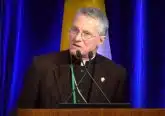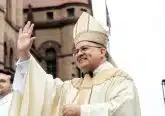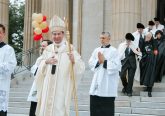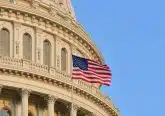A Closer Look: Resisting Partisan Identification for Faithful Discipleship by by Kenneth Craycraft
Among the decisions that the U.S. Conference of Catholic Bishops (USCCB) made at its annual meeting last November, two stand out as especially important. First, the bishops elected Los Angeles Archbishop José H. Gómez – an immigrant to the U.S. – as the USCCB’s first Hispanic president. Second, the bishops affirmed that, while abortion is the preeminent moral concern of the Church, we cannot ignore any of a host of other social issues. With these decisions, along with their quadrennial letter on forming political conscience, the bishops have challenged American Catholics to resist partisan loyalty, and to apply Catholic teaching to all cultural, social, political, legal and economic issues.
From Monterrey to Los Angeles
Archbishop José H. Gómez was born in Monterrey, Mexico, ordained in 1978 in Spain, immigrated to the U.S. in 1987, and became a U.S. citizen in 1995. From 1987 until his appointment as Vicar of Texas for the Prelature of Opus Dei in 1999, he served in various pastoral capacities at Our Lady of Grace Parish, in San Antonio, TX. Beginning in 2001, he was appointed to a series of episcopal offices: Auxiliary Bishop of Denver (2001-2004); Archbishop of San Antonio (2005-2010); and, in 2010, Archbishop of Los Angeles.
As an immigrant from Mexico, Archbishop Gómez is well suited to oversee the largest Catholic archdiocese in the U.S., approximately 60 percent of whose five million Catholics are Hispanic immigrants and children of immigrants. And he is equally suited to take the mantel as President of the USCCB, which provides guidance to all Catholics in the U.S., including the approximately 60 percent of whom are non-Hispanic.
A Both/And Bishop
More important than Archbishop Gómez’s ethnic heritage, however, is his commitment to the entire range of Catholic social doctrine, while resisting partisan identification. As The New York Times noted, Archbishop Gómez’s careful attention to social issues “has often been more pastoral than overly political.”
On the one hand, for example, on the eve of oral argument in the U.S. Supreme Court on the Deferred Action for Childhood Arrivals (DACA) case, the Archbishop called for a legislative resolution for the children of undocumented immigrants. “In this great country,” he wrote, “we should not have our young people living under the threat of deportation, their lives dependent on the outcome of a court case.” Thus, he called for the President and Congress to set aside partisan interests, and “provide our young brothers and sisters with a path to legalization and citizenship.”
On the other hand, Archbishop Gómez resists being characterized as a champion of so-called “liberal” causes. His insistence on care for immigrants does not come at the expense of his staunch defense of the Church’s teachings on abortion and contraception or broader family issues. He has called abortion “a matter of fundamental human rights,” for example. And, at Notre Dame last summer, he worried that “our society has rejected what 20 centuries of Christian civilization considered a basic fact of nature: that most men and women will find their life’s purpose in forming loving marriages, working together, sharing their lives and raising children.”
Resisting Partisan Identification
Archbishop Gómez’s dedication to the whole of the Church’s social teachings was on full display immediately after his election as president of the USCCB. As they did prior to the 2016 General Election, the bishops have promulgated a guide, Forming Consciences for Faithful Citizenship, informed by Catholic social doctrine, to assist Catholics in analyzing issues and candidates for the 2020 election.
Along with the guide, and after vigorous debate, the bishops published an introductory letter in which they affirmed that abortion must be considered the most serious moral issue: “The threat of abortion remains our preeminent priority because it directly attacks life itself, because it takes place within the sanctuary of the family, and because of the number of lives destroyed.” But, in the spirit of the “both/and” theology of their new president, in the very next sentence the bishops stated, “At the same time, we cannot dismiss or ignore other serious threats to human life and dignity such as racism, the environmental crisis, poverty and the death penalty.”
The letter goes on to explain the rationale for prioritizing the concern about abortion, but then proceeds to issue guidance on the whole range of social, cultural, political and legal issues facing Catholic citizens and voters: care for the poor, health care reform, refugee and asylum policy, racism, religious liberty, gun violence and other issues that affect human life and dignity. “Finally,” the bishops declared, “We must urgently find ways to care better for God’s creation … and protect our common home. We must resist the throw-away culture and seek integral development for all.”
This is not a liberal or conservative agenda. It is not Democratic or Republican. It is a Catholic agenda, informed by the full range of Catholic social doctrine. And it is a call for the Catholic faithful to diligently resist partisan identification at the expense of Christian discipleship. Because, as USCCB President Archbishop Jóse H. Gómez said to Crisis magazine,
“If our faith doesn’t sometimes make us uncomfortable with our political commitments, then there’s something wrong.”














